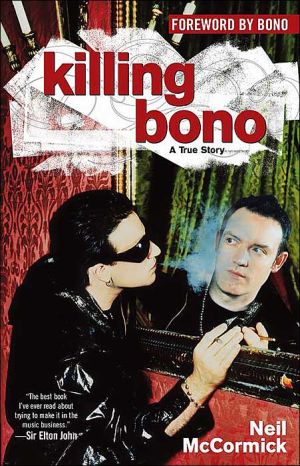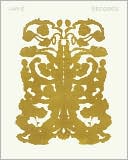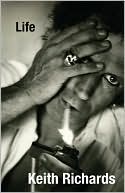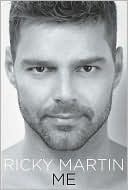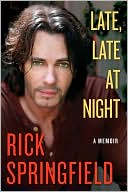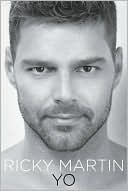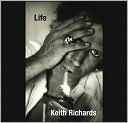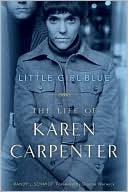Killing Bono
Some are born great.\ Some achieve greatness.\ Some have greatness thrust upon them.\ And some have the misfortune\ to go to school with Bono.\ \ Everyone wants to be famous. But as a young punk in Dublin in the 1970s, Neil McCormick's ambitions went way beyond mere pop stardom. It was his destiny to be a veritable Rock God. He had it all worked out: the albums, the concerts, the quest for world peace. There was only one thing he hadn't counted on. The boy sitting on the other side of the...
Search in google:
Some are born great.Some achieve greatness.Some have greatness thrust upon them.And some have the misfortuneto go to school with Bono.Everyone wants to be famous. But as a young punk in Dublin in the 1970s, Neil McCormick's ambitions went way beyond mere pop stardom. It was his destiny to be a veritable Rock God. He had it all worked out: the albums, the concerts, the quest for world peace. There was only one thing he hadn't counted on. The boy sitting on the other side of the classroom had plans of his own.Killing Bono is a story of divergent lives. As Bono and his band U2 ascended to global superstardom, his school friend Neil scorched a burning path in quite the opposite direction. Bad drugs, weird sex, bizarre haircuts: Neil experienced it all in his elusive quest for fame. But sometimes it is life's losers who have the most interesting tales to tell.Featuring guest appearances by the Pope, Bob Dylan, and a galaxy of stars, Killing Bono offers an extremely funny, startlingly candid, and strangely moving account of a life lived in the shadows of superstardom."The problem with knowing you is that you've done everything I ever wanted to," Neil once complained to his famous friend. "I'm your doppelganger," Bono replied. "If you want your life back, you'll have to kill me."Now there was a thought... Publishers Weekly The author of this exuberant rock memoir went to school with the members of super-group U2 and stayed friends with Bono (ne Paul Hewson) as he rose from garage-band front-man to rock colossus to world dignitary thanks to his stumping for debt relief for the world's poorest countries. But the book is less about the distant figure of Bono than about McCormick's feverish quest to emulate his success in a series of bands; he spent 10 thrilling, agonizing years on the brink of making it. The result is a funny, jaundiced celebration of rock 'n' roll fantasy and reality, chronicling the music, the debauchery, the search for band mates who can play an instrument, the philistinism of major label A&R reps, the wasted talents of the wannabes they crush, the seething resentment toward those who make it and the intoxicating rush of live performance that transfigures even those who don't. McCormick, now the rock critic for Britain's Daily Telegraph, includes some overwritten analysis of Bono's lyrics and musings on God and the meaning of life, but his book is also full of trenchant observations of the 1970s Dublin punk scene and the shifting styles of 1980s New Wave and pop. McCormick's is an authentic, gripping rock 'n' roll voice, veering between self-importance and self-loathing on an unsteady journey toward self-knowledge. Agent, Sarah Lazin. (Oct.) Copyright 2004 Reed Business Information.
Prologue\ I always knew I would be famous.\ By the time I left school, at seventeen, my life was planned down to the finest detail. I would form a rock band, make a series of epoch-shifting albums, play technologically mind-blowing concerts in the biggest stadiums on the planet until I was universally acknowledged as the greatest superstar of my era. And I would indulge in all manner of diversions along the way: make films, write books, break hearts, befriend my idols...oh — and promote world peace, feed the poor and save the planet while I was at it.\ You might think I was just another arrogant teenage airhead with fantasies of omnipotence. Indeed, there were plenty around me at the time who did their best to persuade me that this was the case. But I wasn't about to be put off by lesser mortals jealous of my talent. Because I knew, deep, deep in the very core of my being, that this wasn't just another empty dream. This was my destiny...\ So there I was, thirty-five years old, sitting in a shabby, unheated little excuse for an office above a bookie's in Piccadilly, watching the rain drizzle down my single, grimy window, wondering where it had all gone wrong. I'd wanted to be a rock star and had wound up becoming a rock critic. To compound my torment, I was suffering from a bad case of writer's block with my newspaper deadline looming and the fucking telephone hadn't stopped ringing all morning with a succession of PRs pestering me about their shitty rock bands, all of whom I secretly resented for, I suppose, just being more famous than me. But at least talking on the phone gave me an excuse for not writing my column.\ "It better be good," I snapped into the receiver.\ "This is the voice of your conscience," announced my caller in a gravelly, wasted Dublin accent that reeked of smoke, late nights and fine wines.\ "Bono," I said, in recognition.\ "You can run but you can't hide," he laughed.\ "The way I feel right now, I don't think I could even run," I sighed.\ It was, indeed, Bono: rock legend, international superstar, roving ambassador for world peace and (though it is unlikely to feature prominently on his CV) a schoolfriend of mine from Mount Temple Comprehensive.\ "Where are you?" I inquired, listening to the echo of global distance bouncing down the phone line.\ "Miami," he said. "Playground of America. Ever been to Miami? The gangsters look like fashion designers. Or maybe the fashion designers look like gangsters. Sometimes it's hard to tell..."\ There was a time when we had both been singers in schoolboy bands, playing every toilet in Dublin, convinced against all the odds that we were the chosen ones, bound for glory. We moved in different circles these days. I wrote for a newspaper. He was the news. But every now and then, when something brought me to mind, Bono would call up out of the blue to fill me in on his latest adventures in the stratosphere of superstardom.\ "I was out at a club last night," he said, slipping into raconteur mode, his voice an intimate whisper. "It was very Scarface but, like I said, maybe it was just a fashion thing. Lots of men with mustaches, models draped over their shoulders, you know? Every man and woman in the place was puffing on enormous cigars. Clouds of smoke everywhere. Smoke-rings rising up to the ceiling. There's something about a beautiful woman and a cigar; it's a very powerful combination, don't you think?"\ "Until you kiss them and find out they taste like an ashtray," I grunted.\ "You're such a romantic," said Bono. "So I'm led into this room at the back which is just filled with hundreds of little drawers, floor to ceiling. And each little drawer has a little plaque with a name on it: Schwarzenegger, Stallone...Madonna! You know, all the famous cigar smokers! It's like a walk-in humidor. All these personal stashes of illegally imported Cuban cigars maintained at perfect temperature and humidity for whenever they want to drop in and have a puff. I was looking for the President's name, 'cause I'm sure he has his own drawer in there somewhere. It's pure Miami. This whole city's like the shop window for the American dream. But then — and you'll love this, Neil — I see a box with the name 'Sinatra'! Francis Albert! They keep one for him. How cool is that?"\ As I listened, occasionally making encouraging noises, I watched a pigeon splashing about in a puddle that was building up on the ledge outside my rotting window-frame. Miami seemed a long way away. Bono sounded woozy and happy after his night on the tiles but I had a strange feeling welling up in my chest, a disturbing swirl of conflicting emotions. I was pleased that Bono had called me. Flattered, even. I liked and admired the man as much as anyone I had ever known. So why did his voice have the power to send a sharp stab of insecurity running right through my heart?\ "I thought of you, 'cause I know you've always been a big fan of Frank," said Bono. "I can't quite believe this myself, but I have done a duet with the Chairman!"\ That was it. Something popped in my head. "Stop!" I spluttered. "Enough! I should be doing a duet with Frank Sinatra! What's Sinatra to you? Just another famous scalp! I love Frank Sinatra. Leave him alone! Next you'll be telling me you've been asked to play James Bond."\ There was a moment's uneasy silence, then Bono laughed. "Actually, the Edge and I have written the new Bond theme for Tina Turner."\ "Oh, fuck off!" I snapped. "The problem with knowing you is that you've done everything I ever wanted to do. I feel like you've lived my life."\ Laughter echoed back down the line. "I'm your doppelganger," Bono said. "If you want your life back, you'll have to kill me."\ Now there was an idea...\ When I put down the phone I started to brood. Was Bono really my evil twin? Or was I his? Now that I thought about it, our careers had diverged early on and just kept on getting wider and wider apart. As he rose to the highest realms of fame and fortune, I had plummeted to the depths of anonymity, a rock 'n' roll casualty, leaving only the briefest of traces in the margins of pop history, and that for being the first person to leave U2.\ Oh, yes. I didn't mention that, did I? But we'll get to it.\ Perhaps I was the yang to Bono's yin. The dark counterbalance to his life of success and good fortune, absorbing all the bad luck and mischance that never seemed to go his way.\ I pulled down a decaying, much-thumbed, hardback antique Oxford English Dictionary from my overcrowded bookshelves. Doppelganger (ad. Ger. Double-ganger): The apparition of a living person; a double, a wraith. 'That's me all right,' I thought. Just a phantom reflection of everything I ever wanted to be. And everything I ever wanted to be was personified by a bloke I had gone to school with. How cruel was that?\ "Bono Must Die!" I typed into my computer. I blew it up, 72-point bold, and printed it out. It looked good. I knew a few people who would wear that T-shirt.\ "I, Bono," I typed. Perhaps I could sell my story to The National Enquirer. "Bono Stole My Life."\ Not that I hadn't achieved things in my own right. Deep inside, I knew that to be true. But, in the blinding glare of superstardom, the small triumphs of ordinary existence don't always register. Instead you can easily become a footnote in somebody else's story.\ So let me get something straight from the start. Contrary to what you may have read elsewhere, I do not have the dubious distinction of being to U2 what Pete Best was to the Beatles: the man who missed the gravy train. I know, it is right there in black and white in the group's authorized biography, The Unforgettable Fire. In Chapter Four, biographer Eamon Dunphy informs his readers of the first fateful gathering of the band that would become U2, to which Bono, apparently, "turned up with another Mount Temple pupil, Neil McCormick, who, like everyone else present, fancied being lead guitarist." However, after a few grim renditions of rock standards, including "Brown Sugar" and "Satisfaction," "Neil decided to bail out."\ That rather trivial little tale seems to follow me around wherever I go, as the source of many other biographical presumptions. I still wince whenever I see myself described in print as an "original member of U2," or, worse, "ex-U2," as if the defining moment of my entire life was petulantly stomping out of a rehearsal room back in my schooldays. So please read the following carefully: I wasn't there and, even if I had been, any ambitions to become lead axeman in the nascent combo would surely have been hampered by the fact that I had only ever mastered three chords on my daddy's Spanish guitar — and I wasn't even sure which chords they were.\ But if something is printed often enough it becomes the truth, or at least the official version of events. I think the members of U2 actually believe it themselves at this stage. Certainly, that was the impression I got when I finally made it to Miami, as a guest of the band for the launch of their 2001 world tour. At a backstage party, the band's manager, Paul McGuinness, kept introducing me as a member of the original lineup. The fact that a former alumnus of his band was now music critic for the conservative British broadsheet the Daily Telegraph seemed to amuse him immensely.\ The pouting and gorgeous Andrea Corr was there, somehow looking even more desirable than usual with a pint of Guinness in one hand and a lit cigarette in the other. "Did you really walk out on U2?" she asked, sounding suitably impressed.\ "I told Bono the band wasn't big enough for the both of us," I replied. "If they'd have stuck with me, they could have really gone places." (Come on. What was I supposed to say to the most beautiful woman in Ireland? That it was just a misprint?)\ "How does it feel seeing them on stage?" Andrea asked. "Do you think, 'That could have been me up there'?"\ Now that was cutting a little too close to the bone.\ I looked around the room, crowded with familiar faces. The sleek, über-rock figure of Lenny Kravitz lingered in a corner, dressed in fake fur entirely inappropriate for the climate, his expression hidden behind omnipresent, impenetrable reflective shades. He was silently accompanied by someone who appeared to occupy the role of mobile-phone roadie. Lenny would hold out a hand and a gleaming, metallic phone would miraculously appear in it. When his conversation was over, he would hold out the phone and the roadie would slip it back into his pocket.\ Elvis Costello, an entity from a different end of the rock spectrum, portly, bespectacled and dressed like he had just been for a rummage in a charity shop, mopped his sweaty brow, engrossed in musical conversation with chrome-domed producer Brian Eno.\ There were old friends of the band, such as the extravagantly talented singer-songwriter and one-man art installation Gavin Friday (who had an arm wrapped around one of the beautiful Corr sisters) and eternally poised press officer Regine Moylett. There was the red-blazered Irish aristocrat Lord Henry Mountcharles, perhaps slightly the worse for wear, directing his conversation into the unconvincingly inflated cleavage of one of Miami's beach-babe set. The small but perfectly formed figure of supermodel Helena Christensen flitted by in a flimsy summer dress while Christy Turlington posed resplendently on the other side of the room. There were members of U2's crew and management, familiar faces from Dublin, many of them looking red and puffy following a few days on the tear in the Miami sunshine. There were wives, girlfriends, children. And there was a smattering of tanned and immaculately attired local worthies who had succeeded in blagging coveted Access All Areas passes.\ Upstairs in an enormous ballroom a party was in full swing, with superstar DJ Paul Oakenfeld spinning discs and scantily clad waitresses serving free drinks for several hundred regular, common-or-garden VIPs. But this was where the real insiders could be found, crammed into a narrow corridor behind the stage, basking in the presence of the band.\ Bono, the Edge, Adam Clayton and Larry Mullen, the four members of U2, were scattered about the room, sweaty and exhausted after a two-hour tour de force performance, graciously accepting fulsome praise from this ragged assembly of celebrities, family, friends, colleagues, freeloaders and assorted hangers-on.\ I watched it all and wondered where exactly I fitted in. This was the very life I had imagined for myself all those years ago, but here I was only by an accident of acquaintance. I caught Bono's eye. He was, as usual, the center of a huddle of activity: rock stars and supermodels hanging on his every word. He winked at me and grinned.\ I remembered a conversation we had, late one night, many, many years ago. We were talking about U2's first-ever performance, playing cover versions on some rickety school tables held together by sticky tape in the Mount Temple gymnasium.\ "That gig changed my life," I admitted to him.\ "It changed mine too!" he excitedly replied.\ The difference was, it changed his for the better.\ Copyright © 2004 by Neil McCormick
\ Publishers WeeklyThe author of this exuberant rock memoir went to school with the members of super-group U2 and stayed friends with Bono (ne Paul Hewson) as he rose from garage-band front-man to rock colossus to world dignitary thanks to his stumping for debt relief for the world's poorest countries. But the book is less about the distant figure of Bono than about McCormick's feverish quest to emulate his success in a series of bands; he spent 10 thrilling, agonizing years on the brink of making it. The result is a funny, jaundiced celebration of rock 'n' roll fantasy and reality, chronicling the music, the debauchery, the search for band mates who can play an instrument, the philistinism of major label A&R reps, the wasted talents of the wannabes they crush, the seething resentment toward those who make it and the intoxicating rush of live performance that transfigures even those who don't. McCormick, now the rock critic for Britain's Daily Telegraph, includes some overwritten analysis of Bono's lyrics and musings on God and the meaning of life, but his book is also full of trenchant observations of the 1970s Dublin punk scene and the shifting styles of 1980s New Wave and pop. McCormick's is an authentic, gripping rock 'n' roll voice, veering between self-importance and self-loathing on an unsteady journey toward self-knowledge. Agent, Sarah Lazin. (Oct.) Copyright 2004 Reed Business Information.\ \
